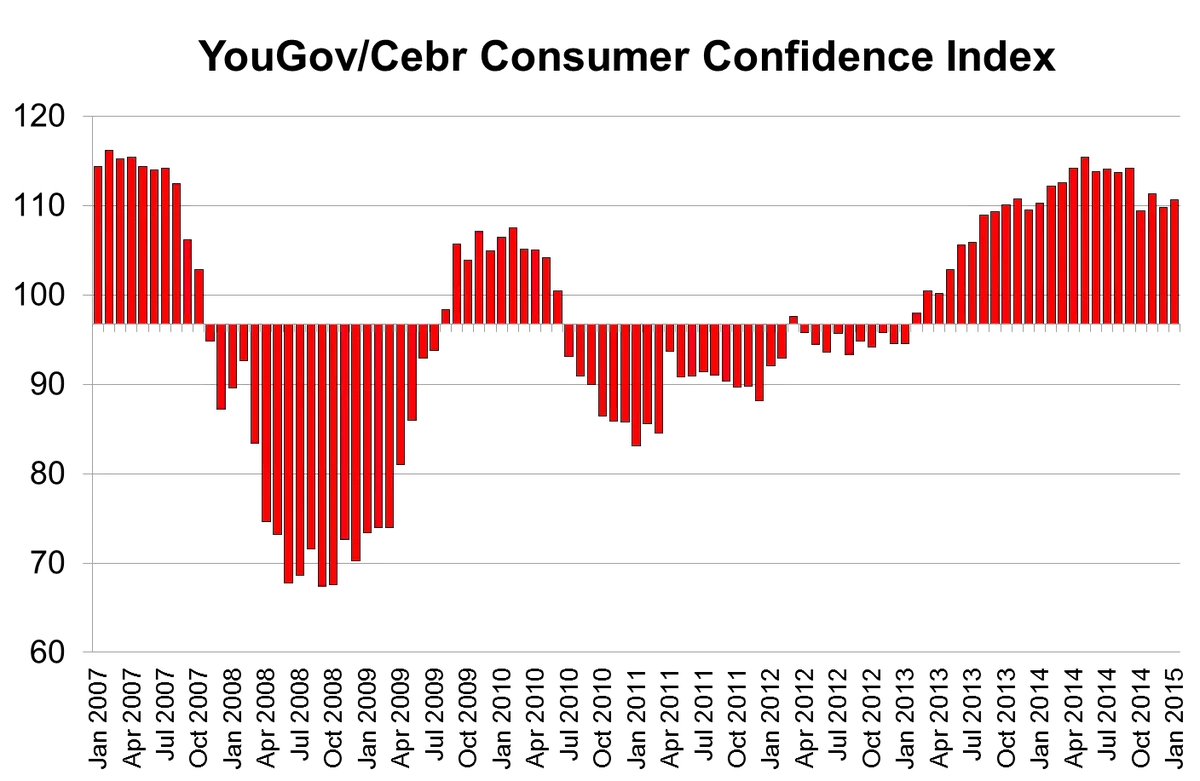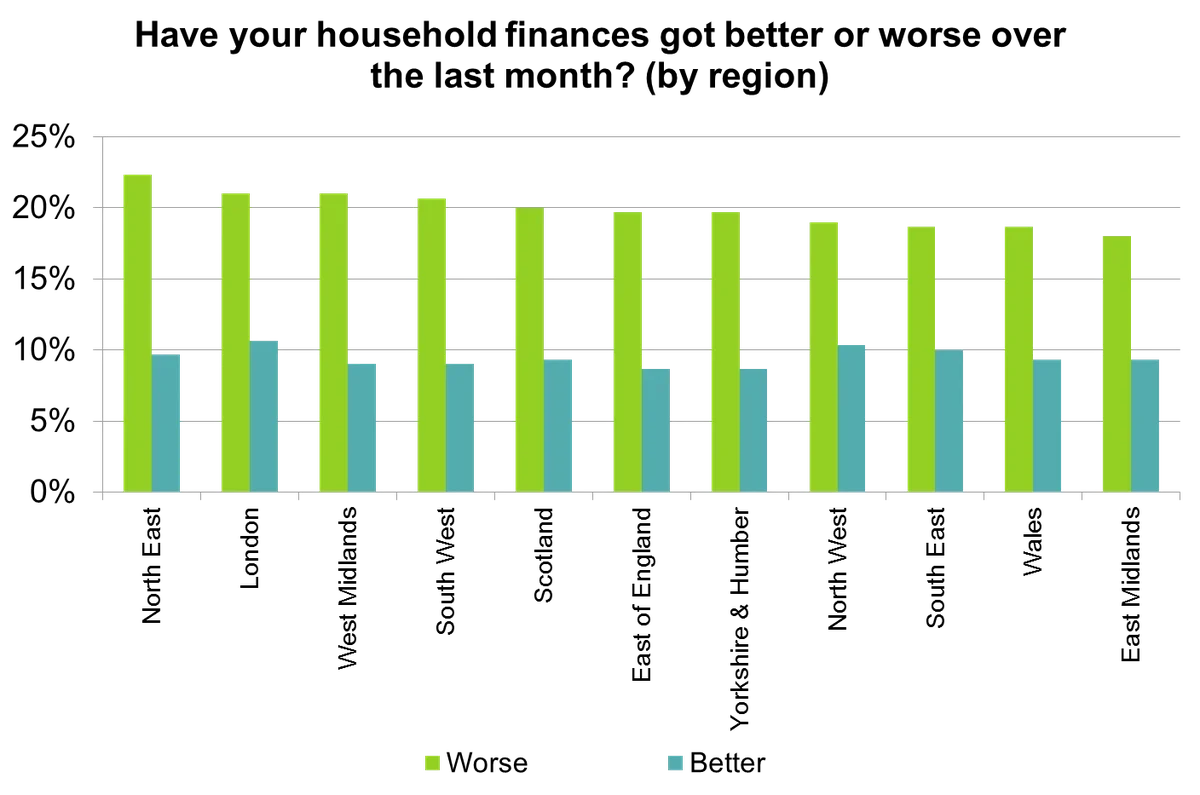- Consumers still not yet feeling recovery in their wallets - only 9% see household financial situation improve over last month
- Around twice as many people in each region of Britain still feel they are getting worse off instead of better off
- Three of eight consumer confidence metrics fall in January – including both house price measures

Source: YouGov/Cebr HEAT data, January 2015
Notes: Axis value of 96.7 represents the average YouGov/Cebr Consumer Confidence Index score since the data set began in 2007.100 represents a neutral score.
The YouGov/Cebr Consumer Confidence Index rose only slightly in January as households’ economic optimism remains muted. The Index increased from 109.7 to 110.7 – and the three month average to January is 110.6 – marginally higher than the three months to January 2014 when it was 110.2.
Three of the eight measures fell during January, including both the forward and backward-looking house price metrics. Five measures increased, including both for house hold finances and job security.
However, despite the small rise in the household finance metrics, more people still feel they are getting worse off each month than feel they are better off. Moreover, around twice as many people in every British region feel their household finances have deteriorated as feel they have improved over the previous thirty days.

Source: YouGov/Cebr HEAT data, January 2015 (three-month rolling average)
Stephen Harmston, Head of YouGov Reports: ‘It is quite a bleak picture. Consumer confidence has dropped away from its highpoint of last spring and summer as the housing market stutters and household finances are too stretched to pick up the slack and generate optimism. Despite talk of the recovery gaining ground, consumer confidence is stuck at similar levels as this time last year. At the root of this is that household finances are not felt to be improving, with around twice as many people in each British region saying they are getting worse off as are getting better off. The fall in energy prices has not fed through to consumers and they still don’t feel the recovery in their wallets, and this is as true of people in London as those in Liverpool or Lanarkshire.
Charles Davis, Director at the Centre for Economics and Business Research: ‘Although today’s GDP figures confirmed the fastest growth since before the financial crisis, the economy risks slowing in early 2015 as confidence falls back. More importantly, we are still struggling to see clear signs that consumers feel the benefit of faster growth in the wider economy. Logic says this should start to change as pay growth finally runs ahead of inflation. But it will take time for UK households to make up years of lost growth from the aftermath of the crisis. As the election approaches consumers still don’t feel like they have reached economic “escape velocity”.'
Find out more information about the Household Economic Activity Tracker
Image from PA






